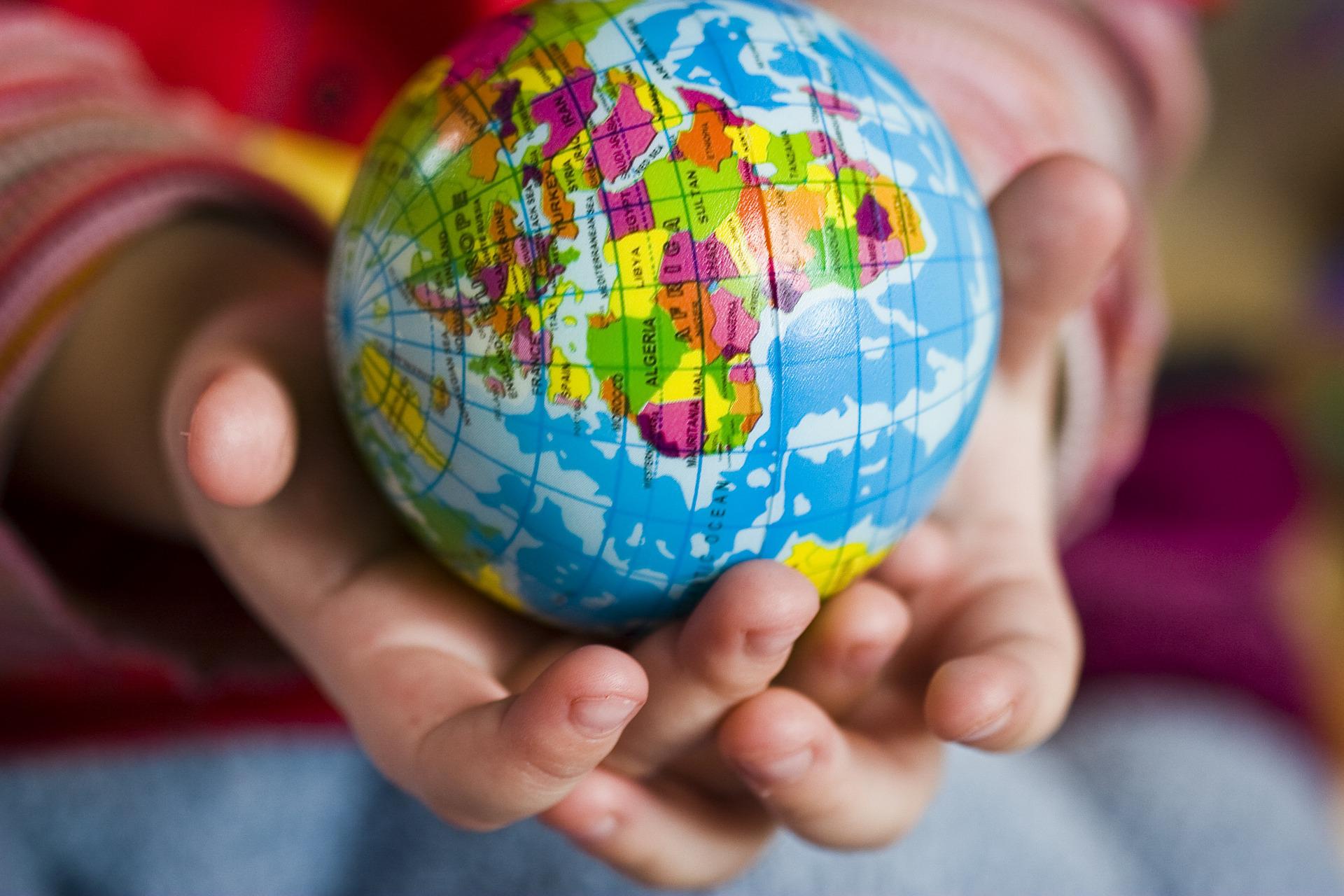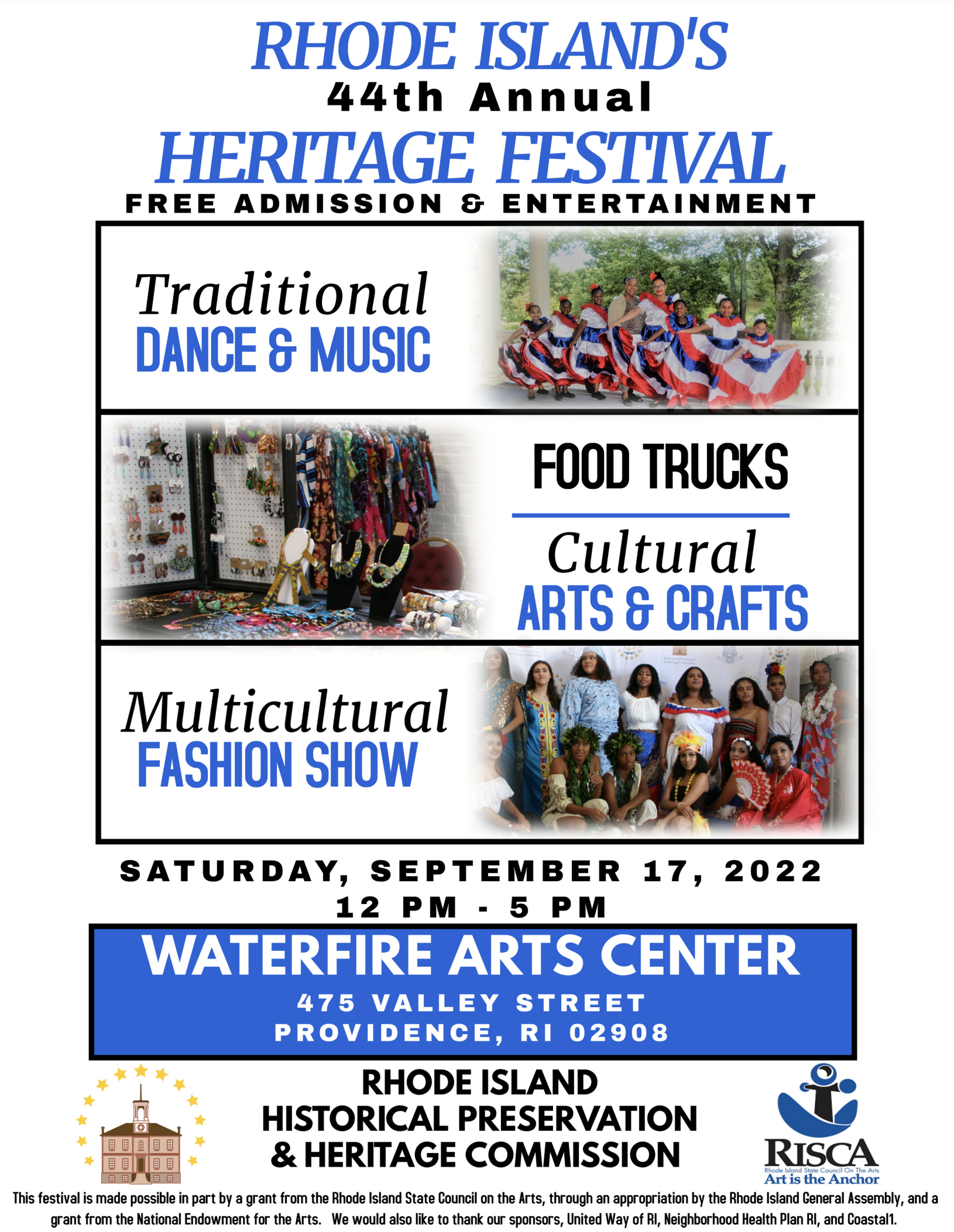
When I was a child, my parents lived within 30 miles of their own parents and the places they grew up. In contrast, I now raise my own children 3,340 miles from my parents and hometown. I am not alone. In the last fifty years movement across the world has become easier and more frequent. Our towns and cities are home to an increasingly diverse range of people. We we no longer even need to travel to encounter people in different time zones; we can sit in our homes or places of work and talk to people from an entirely different place on a screen.
As someone who is privileged to live in a different country to the one I grew up in, and who enjoys friendships and community with people from across the continents, I am keenly aware of the need to enable my children to engage with those from other countries and cultures in healthy, positive ways. I hope that as they grow, so too will their awareness of the great diversity of people and places that exist in our world and that it will not only affirm their own sense of identity but expand their minds and build a sense of responsibility towards others no matter where they are from.
Here are five ways that we can introduce our kids to different countries and cultures:
1. Try food from other countries
Introducing foods and cuisines from other countries is a fun and tasty way to spark a child’s interest in our world. Even our littlest kiddos can be introduced to different flavors, while older children can learn the different ways food is sourced and prepared in other parts of the world. Peter Menzel’s Hungry Planet is a great resource for thought-provoking conversations with older children and teens.
Introducing unfamiliar foods can be difficult, but learning to be open to trying different foods is important for crossing cultural barriers. Food is a universal experience and being able to share a meal with others is a valuable skill in our increasingly global world.
You might consider starting a monthly or weekly family dinner night where you try out the most popular dishes from another country. Include the kids in selecting which country you are going to explore, help them to find it on a map, and play some background music from the same place while you eat. If you don’t want to cook, Rhode Island has many takeout options representing different cuisine. Let kids take part in looking at the menu and selecting something they want to try.
My own kids have enjoyed Universal Yums, a monthly subscription box that delivers snacks from other countries directly to your door!
2. Use the library
Local libraries are fabulous resources for exploring other cultures no matter our age, enabling us to visit places from the comfort of an armchair. Check out books written by popular authors from other countries, or written by immigrants to your own country. Younger children may enjoy picture books of famous global landmarks or people dressed in multicultural clothes that they don’t typically see on their own streets. Older children may be ready to explore personal experiences through biographical novels or to familiarize themselves with maps.Explore the foreign language sections for books, movies, and music. As your librarian for more recommendations!
3. Explore local cultural events
If your child has an interest in sports, music, or art that is a great opportunity to explore these same cultural pursuits around the world, and can open up young minds not only to the different ways these cultural activities are practiced but also to the different ways of thinking that inform them. Try watching the Olympics or World Cup when they come around, listening to music from around the globe, or checking out different art galleries and exhibitions.
As a family, we grab any opportunities we get to join cultural events and celebrations being held in our local area. The late summer and fall are often times when different groups in New England celebrate their heritage by putting on events that visitors are welcome to attend. Besides sampling the delicious traditional foods, we always encourage our kids to watch and participate in any activities that are happening and talk about how traditions grow from a communities’ unique experiences and heritage.
A great way to connect to these types of events in Rhode Island is via R.I.’s Historical Preservation and Heritage Commission. This state-funded commission posts local cultural events on its Facebook page, as well as educational materials on YouTube. They also host the State’s biggest annual heritage festival each year which is free. It features music, dancing, arts and crafts, and a multicultural fashion show featuring traditional and ceremonial clothing. It’s the perfect introduction to the 25+ different cultures represented in our State. Don’t miss this year’s festival on September 17th!
Donna Alqassar, from the Historical Preservation and Heritage Commission comments that this event is an opportunity for the general public to experience various art forms that have been passed down from generation to generation and is such an important experience for children. “Many groups have told us that families reach out to them afterward to say that these performances have sparked conversations about acceptance and overcoming stereotypes and biases. The festival has been designed to provide public access to meaningful programs to expand cultural awareness and ultimately provides us with a stronger sense of community.”
4. Expose them to different languages
Language acquisition is a powerful way to unlock doors to other cultures, and research suggests that there are many benefits to bilingual education. If your child is not already in a multilingual environment at home, immersing them in a school environment where a different language is spoken can seem a little scary, but in the increasingly global world we live in it may be one of the greatest gifts you could give them! Even if you’re not able to commit to bilingual education, exposing your children to different languages, whether through caregivers, learning apps, or TV, can broaden their perspective of the world. Listen to familiar songs sung in different languages (I can tell you that ‘Let it Go’ sung in French is a revelation!) or look at translations of their favorite picture books. Even if you cannot read a book written with a different alphabet, you can talk about how the writing looks and where it comes from.
5. Connect with people from other places
While we as parents can do a lot to introduce our children to other countries and cultures, often the best teachers and experiences will be when we can facilitate our children’s interaction with different people and places for themselves.
Travel is an obvious way to enable this firsthand experience, but it can be tokenistic and cost-prohibitive. More affordable alternatives can be local community-based activities (as previously mentioned), virtual field trips, service projects, and foreign exchange programs. Another relatively simple option might be to connect your child to a pen pal in another country; Global Penfriends and International Pen Friends are just two organizations that exist in order to help you do that.
There are many ways that we can introduce our children to the richly diverse world that they are part of, but the biggest impact on our kids will be how we ourselves seek to learn from and understand people who are different from us. Seeking out friendships with people from different cultural backgrounds and places shows children that friendships are both important and possible across cultural boundaries and will prepare them for life in our globalized world.

Many thanks to Donna Alqassar from the Rhode Island Historical Preservation and Heritage Commission for her contribution to this post.
Rhode Island’s 44th Annual Heritage Festival will be held on September 17th, 2022 at the WaterFire Arts Center and from 11am-5pm. For more information, visit RI’s Historical Preservation and Heritage Commission’s website: R.I.’s 44th Annual Heritage Festival | Historical Preservation & Heritage Commission
Follow the Commission’s Facebook page for more multicultural events taking place around Rhode Island: Rhode Island Historical Preservation & Heritage Commission- Heritage Events | Facebook












